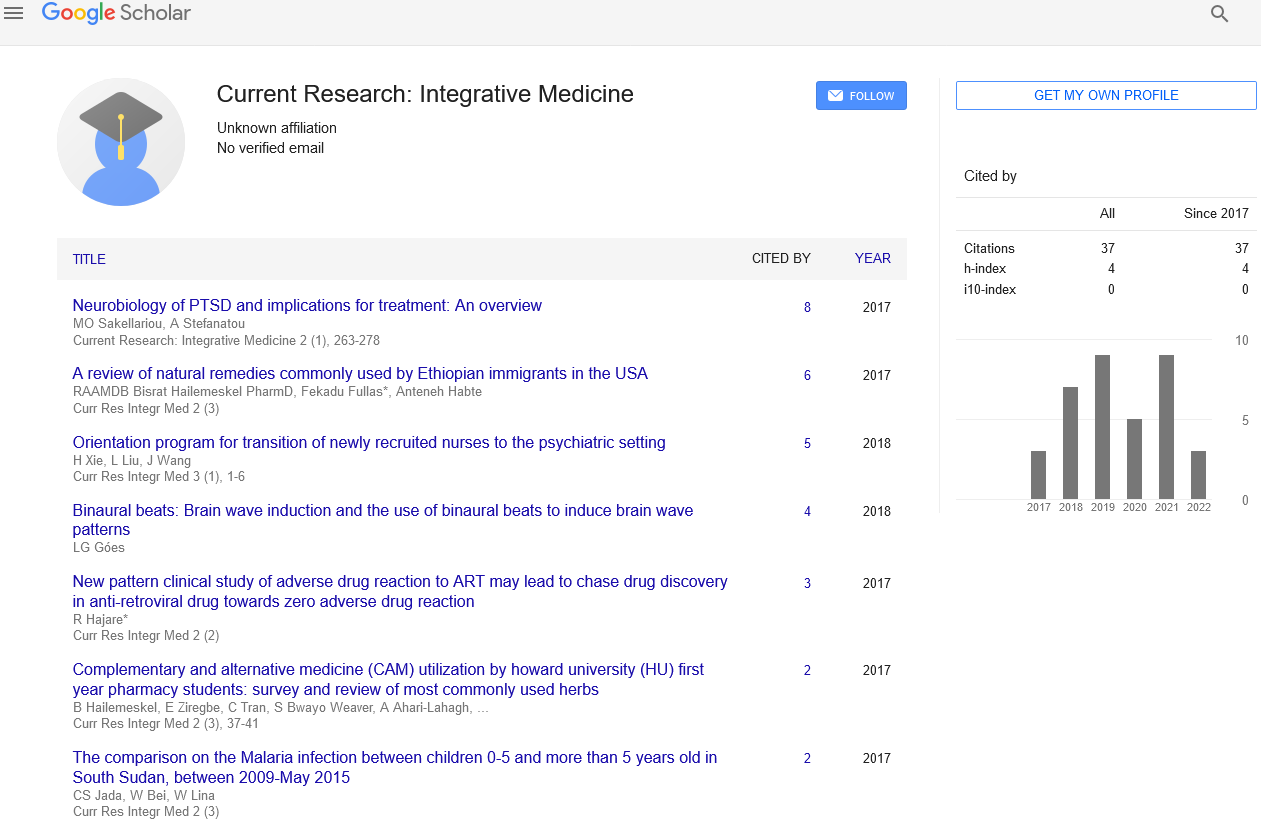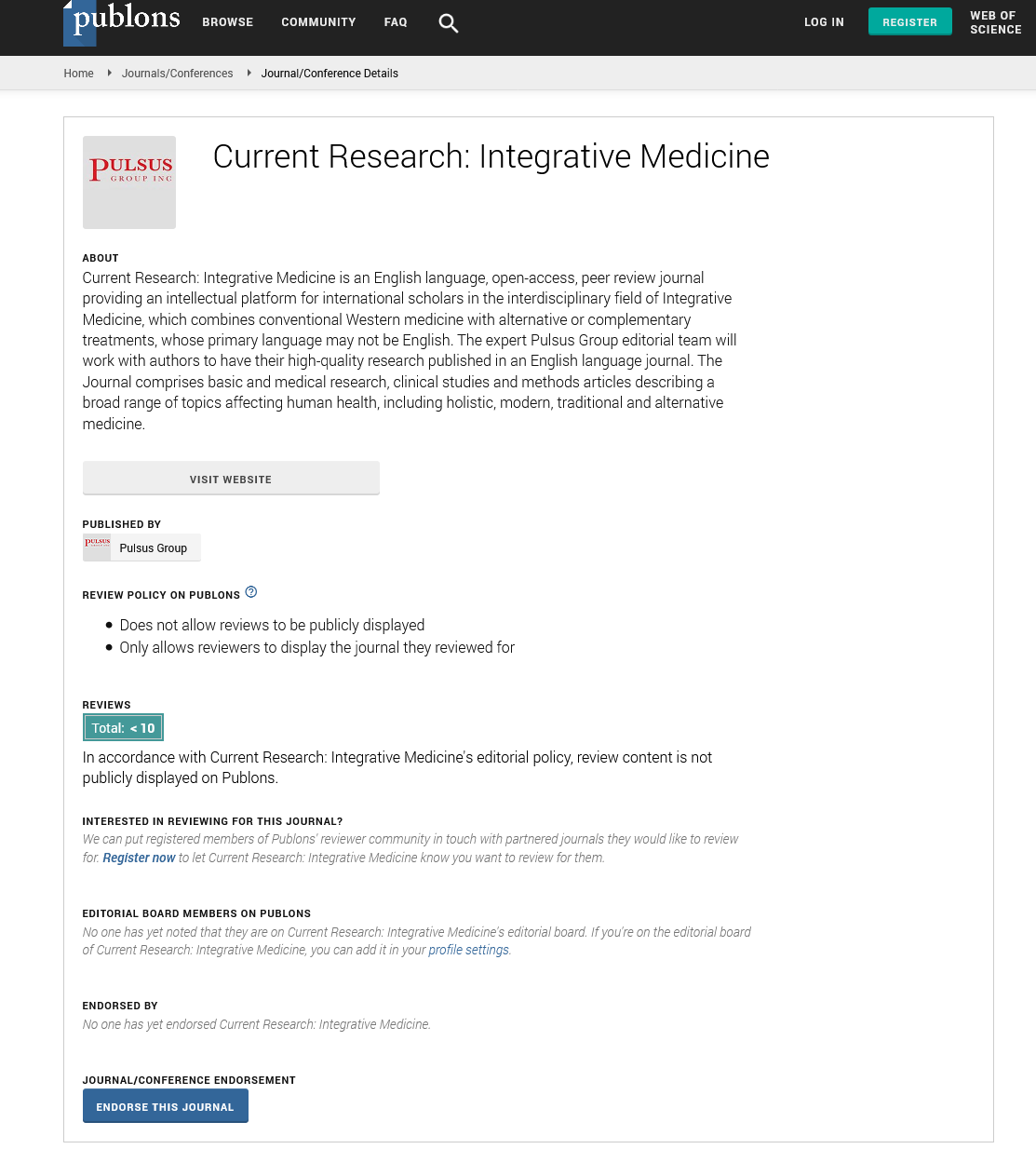
Sign up for email alert when new content gets added: Sign up
Medical Herbalism research, shifting the paradigm
Webinar on Natural Products, CAM Therapies, and Traditional Chinese Medicine
July 04, 2022 | Webinar
Alexander Carberry
University of Birmingham, UK
ScientificTracks Abstracts: Curr Res Integr Med
Abstract :
This paper seeks to establish a paradigm for Medical Herbalism (MH) research, harmonious with how MH is conducted. Researching herbal medicines in controlled experiments, with un-standardised extracts, to identify causal relationships is inherently difficult. The poly-phytochemical nature and complex interactions of medicinal herbs make identifying active ingredients challenging. The effects and variability of the phytochemical makeup within plant material also complicate controlling for phytochemical consistency and observed effect. Utilising pharmaceutical research methods, where a single chemical can be isolated, standardised and its effect observed, is not possible for the conduct of herbal medicinal research. It requires a significant deviation from the natural variations in plants’ poly-phytochemical profiles occurring within species, which is assumed implicitly in MH. We propose a paradigm which shifts the observation from the phytochemicals to observable effects, by utilising continuous biomonitoring technology through using wearable health technology. The purpose is to observe quantitative and qualitative patterns of change in actual people engaged in their everyday activities, which is then subjected to Machine Learning (ML) analysis of the gathered data to find patterns of physiological change and develop ontological databases of effects. We may overlay the quantitative research with qualitative data to understand the experience of people as a result of the changes. For this we need to explore and develop MH specific approaches. The necessity of shifting the focus from the poly-phytochemical problem to quantitative changes in the experimental subject opens new horizons. It shifts the focus from causative to statistical correlative methods and provides a platform for more targeted phytochemical profile research, perhaps utilising ML methods such as Semantic Similarity to identify complex effects resulting from variations within the poly-phytochemical profiles of herbs. Such a framework would require ontological databases of effects linked to herbs, providing infrastructure for more targeted phytochemical research.
Biography :
Alex has an avid interest in smart wearable technologies and their applications and implications for the future of healthcare. He has a degree in medical herbalism and over a decade of clinical experience, with a focus upon psycho-social development, experience and its autonomic implications for health and pathologies. He has particular interests, the experience of wellness and in the patterns of disease and healthcare as an expression of our contemporary culture. He is presently pursuing an MSc in bioinformatics at the University of Birmingham United Kingdom.





